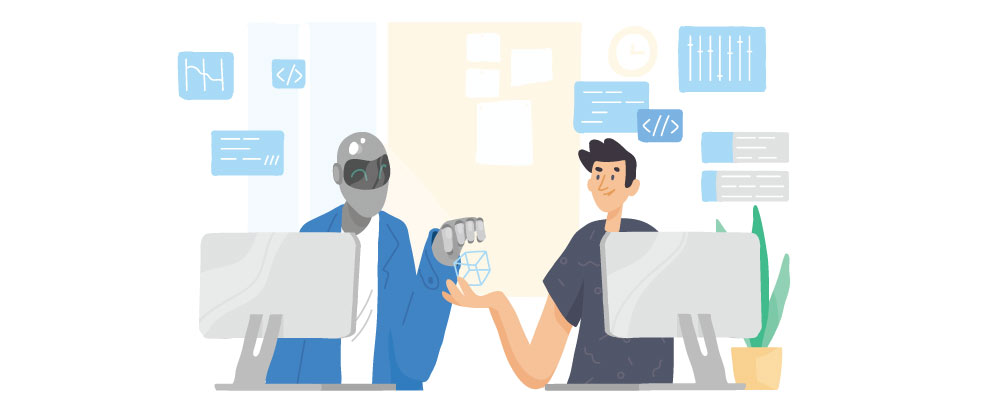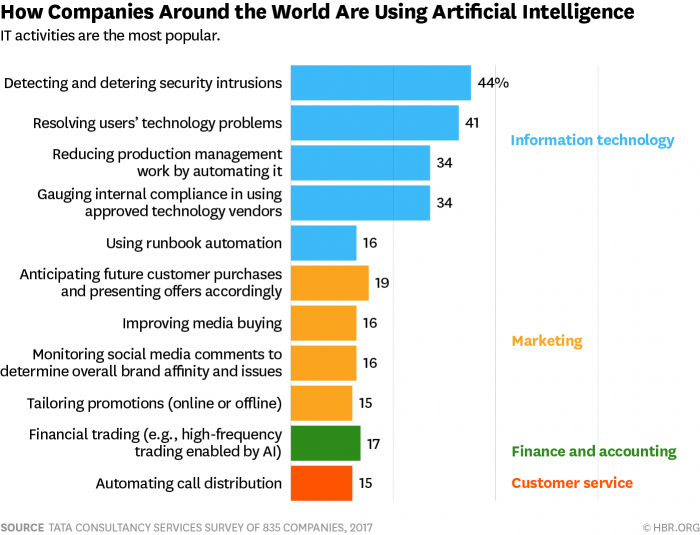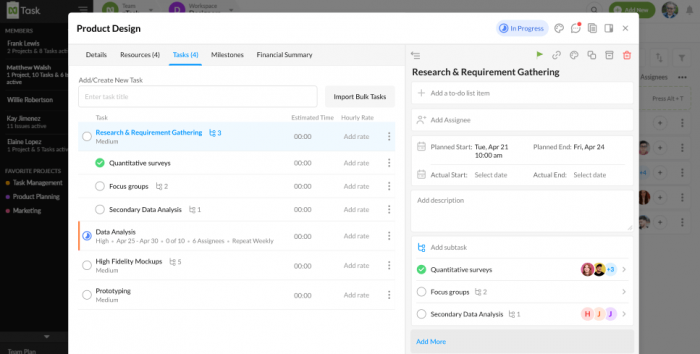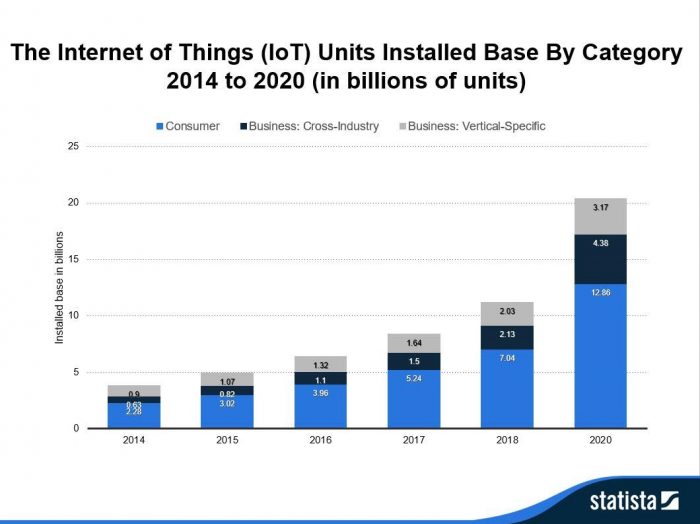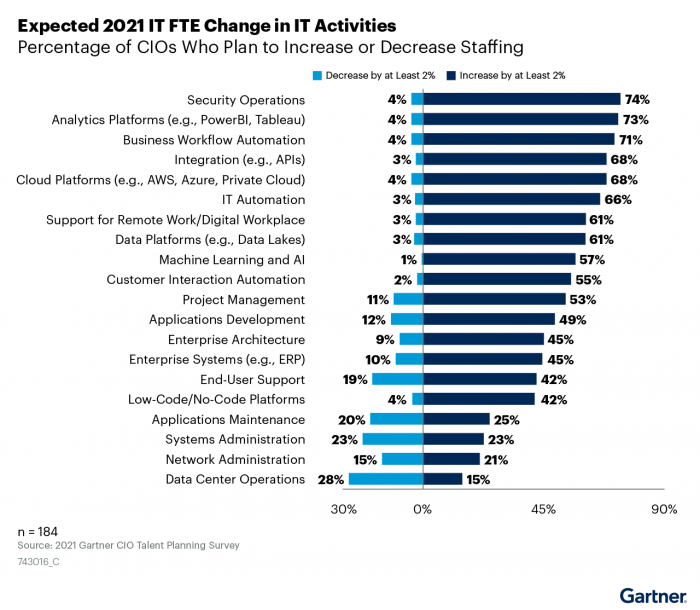AI (artificial intelligence) is going to continue to disrupt our daily lives in a huge way. Like the internet, this tech will completely change the way people live, information is shared, and businesses act.
Every industry is going to be further impacted by AI ( many already have been), but here, we’re going to focus on how it may improve the project management sector.
What is AI?
AI is the intelligence displayed by machines and does not mean that these machines will become self-aware. The term was coined in 1956 by John McCarthy who defined it as: “The science and engineering of making intelligent machines.”
Put simply, AI is a set of technologies such as machine learning, deep learning, and neural networks, which allow computers to think like humans can (at least for some tasks). Some examples of where AI has already been used include Google’s GoMaster, Facebook generating images from text, and Amazon’s product recommendations.
When will AI be able to help project managers?
AI can already make predictions using data. It has the ability to automate processes, save time, and streamline workflows. Its capacity to analyze data, spot patterns, and make informed predictions makes it a powerful tool for project managers and across the whole business environment.
Project managers use Project Management Software (PMS) to support their team, but it’s clear that AI technologies can take this much further—not least because some of the older PMS tools can be costly, clunky, and time-consuming.
As the following examples show, AI is likely to assist project managers and improve processes for decades to come.
How AI will improve project management?
So, let’s look at the main areas in which AI could have a huge impact on project management, and where that impact is already starting to be seen.
1. Predicting project completion times more accurately
Project managers should be excited about the possibilities that AI brings to the table. AI technology will become better at analyzing data and predicting completion times, without the need for rough estimates by project managers. This is because it can read through huge amounts of data (such as past experiences), spot patterns, and make forecasts with an accuracy much higher than humans working alone.
2. Better project management software
Some of today’s project management software tools are clunky, use old technologies, and have a relatively high price tag attached to them, but this could soon change thanks to intelligent machine learning algorithms creating more user-friendly PMS tools.
There are already plenty of ways in which AI technologies can improve current PMS tools, from being able to search tens or hundreds of documents with ease to be able to provide real-time data analytics and automated processes.
Google RPA is a good example of this. It’s artificial intelligence-based software that is able to automate routine tasks such as processing data and filing expenses (and even answering support queries). This allows employees to focus on more high-value projects, boosting staff morale and effectiveness and helping teams to work faster and smarter.
3. AI will be able to complete mundane tasks on your behalf
There are hundreds of hours of administrative work that can be completed by machines more efficiently than humans, freeing up the time of project managers and allowing them to spend their time working on strategic level tasks.
Robotic process automation will play a big part in project managers becoming more efficient. In addition to increasing efficiency, this will boost morale.
Aside from completing routine aspects of a project manager’s role such as admin, AI technologies will also automate repetitive decision-making processes, too. With the chatbot industry growing (see graph below), soon there won’t be any need for a middleman in communication with clients or customers either—self-service is likely to become even more common.
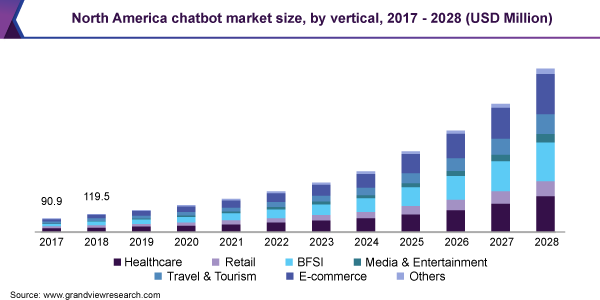
4. Better quality reports by AI
As mentioned, AI can search through huge amounts of data in a short space of time. This makes it ideal for producing reports on completed projects and analyses of future project performance.
5. Better at spotting risk
Risk assessment is an important part of any project manager’s job, but with so many moving parts to keep track of, it can be incredibly difficult at times.
With AI helping project managers spot risk before it occurs (or even before they realize that there is potential for something to go wrong), this will help avoid delays or prevent costly changes later down the line. One current example of this is the implementation of business continuity planning software, which allows project managers to plan for unexpected disruptions in a business’s processes.
6. More efficient resource management
By using smart forecasting and AI technologies, project managers will be able to predict how long a resource is likely to work on a certain type of task. This makes it possible for them to more efficiently plan for both physical and human resources across their projects. They’ll have a better idea of how many hours staff can feasibly work on tasks within specific deadlines, for one thing.
In addition, they’ll be able to automate certain tasks and reduce the need for human resources. For example, project managers will know how to automate Excel, reducing the amount of admin work required for each project.
7. Improved customer experience
A smooth customer experience is all about ensuring that clients and customers feel valued and cared for. Well-designed chatbots and customer experience management software can improve this by using AI technologies to address problems as they arise.
This is particularly useful in eCommerce where automated messages (and “out of office” messages) mean that the consumer is less likely to need to contact a human.
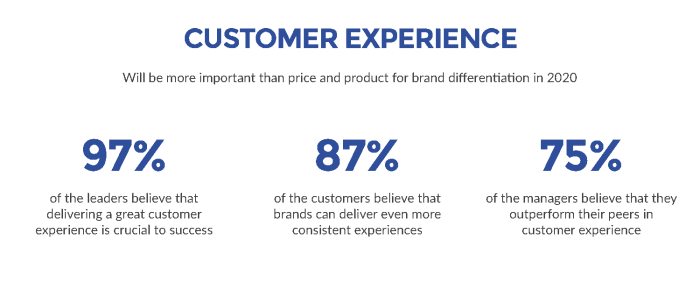
8. Predicting outcomes more effectively
AI technologies are now at a point where they can be used to create forecasts from past data, which is great for those involved in project management. This means that the time and costs associated with a certain task or a whole project could be predicted with much greater accuracy, meaning less chance of failure or disruption down the line.
9. Creation of a knowledge management ecosystem
Widespread use of AI technologies could help to create a knowledge-sharing ecosystem, which would be used by project managers, their teams, and clients. This means that the collected data from any past projects or other sources will all be available to look at in real-time, no matter who needs access to it.
10. Foster a safe project environment
One of the most important parts of project management is encouraging a safe project environment. AI can help do this by reducing the number of human errors.
For example, AI can be used in a variety of ways to create alerts and action points when there is a problem with a task or process. This means that issues can be addressed quickly rather than going unnoticed for days, weeks, or even months.
11. More effective cost management
Using data analysis software to monitor project spending through an AI predictive analytics framework should help to increase productivity across all projects (especially long-term ones).
This should mean that core aspects, such as finance, are easily trackable at all times, allowing managers to make informed decisions about their project’s budget allocation.
12. Increased accountability for all parties involved
When AI is implemented in different parts of your business, each party involved in the management of projects will be held accountable for taking an active role in seeing things through. It also means that organizations can more easily hold individuals accountable for their specific tasks within the whole process, too.
13. IoT automation
Many companies are increasing their IoT implementation. With more and more devices being introduced into our daily lives, it makes sense that project managers are looking to integrate them with their projects.
For example, using sensors within construction equipment will allow managers to check the performance of machinery, so that they know exactly what’s going on at all times. This IoT automation will help them to improve their decision-making and overall project management.
14. Reduced outsourcing and increase in profit margins
Many organizations tend to outsource third-party tasks (especially IT tasks). However, this is changing with the increased use of AI in project management. This will allow companies to reinvest some of those saved resources into the core of what their business does.
AI is especially useful as an alternative to outsourcing, as it can carry out tasks with limited or no supervision from a team member, saving more time for more important matters. For example, companies will be able to create their own apps using no-code platforms.
15. Improved project management qualifications
It’s essential that project managers have the skills and knowledge they need to run successful projects. However, many struggles to get their qualifications recognized or even understood by employers.
As a result, AI can help them to gain recognition and understanding of their role and its value through more interactive education materials and courses. This will mean that organizations know more about what they’re looking for in employees, which will increase the chances of more skilled project managers being employed.
Will your project manager be replaced by artificial intelligence?
Project managers are here to stay. It’s unlikely that their role will ever completely disappear. In fact, the industry is growing, and this trend is predicted to continue. Instead, the introduction of AI technologies will help them become more efficient at their job, freeing up time to work strategically instead of spending hours completing menial tasks.
You will still need a project manager to make the decision of which process you should automate and which process needs a level of emotional intelligence.
Increased uptake of AI will not be an overnight change, but rather a gradual one, affecting small sections of current processes and PMS tools first, before slowly moving into other areas too. To remain relevant throughout this period, therefore, project managers will need to keep up-to-date with new technology and ensure that they are constantly adapting their skillset.
Project managers have had to continuously adapt throughout the years in order to keep relevant, so it’s unlikely that AI will change this. Instead of seeing the tech as a threat, project managers should embrace artificial intelligence technologies and use them to improve both themselves and their organizations.
In summary
Artificial intelligence will not replace project managers but complement them. It’s expected that the time for project management software tools to evolve with AI capabilities is coming soon, which means that this new era of technology will change how PMS is selected, purchased, used, and evaluated in ways we cannot even imagine today.
Project managers who continue to develop their skill set with new technology will not only be best placed to work with these AI project management tools, but will see their career prospects improve in the most positive way, as a result of the sector’s evolution.
Post By: Tammy Wood
Director of Global Technical SEO at Automation Anywhere
Tammy Wood has been involved with SEO for two decades. Her current role is Director of Technical SEO, for Automation Anywhere, a business process automation platform. While not chasing keywords Tammy enjoys reading, buying shoes, and writing articles about both RPA and SEO.
